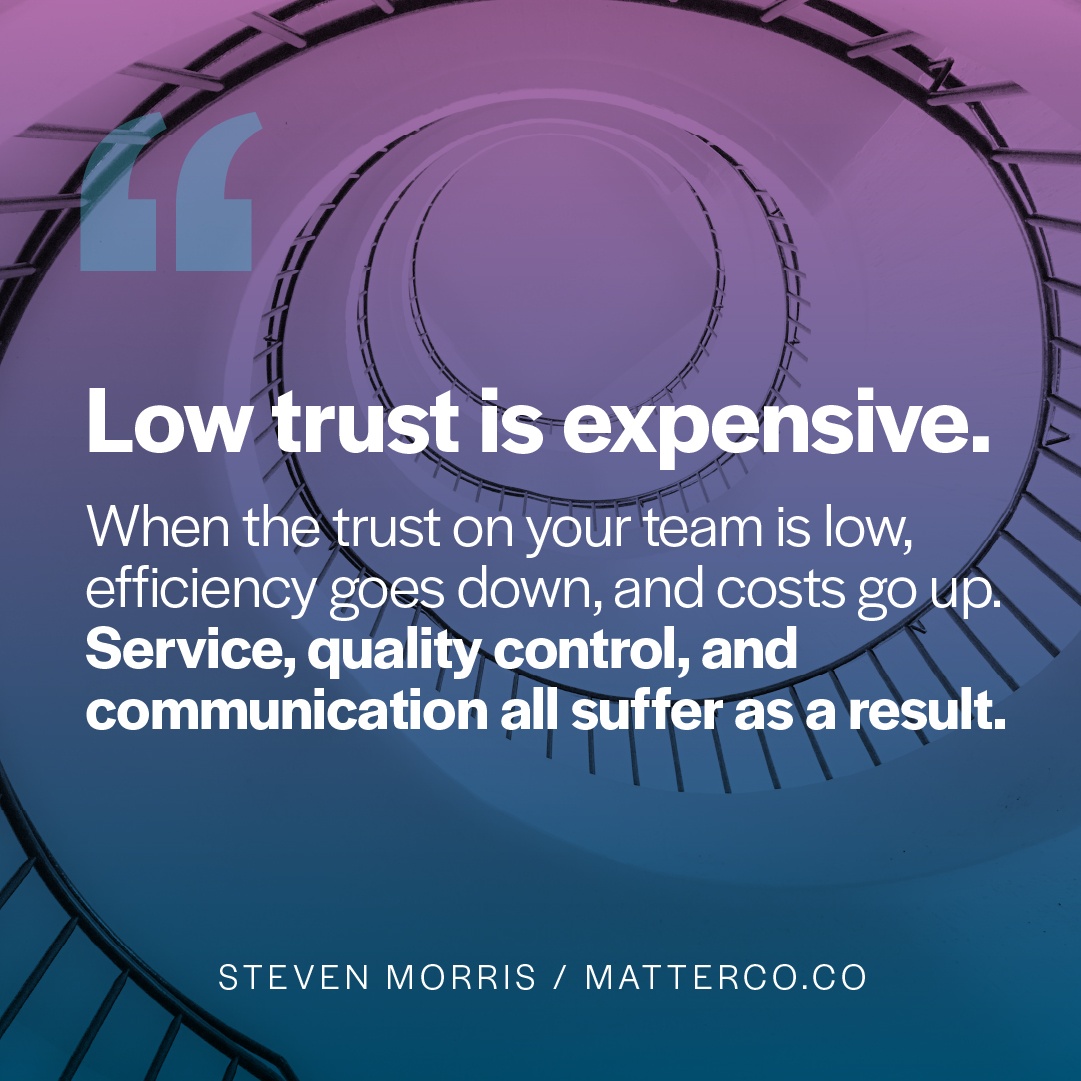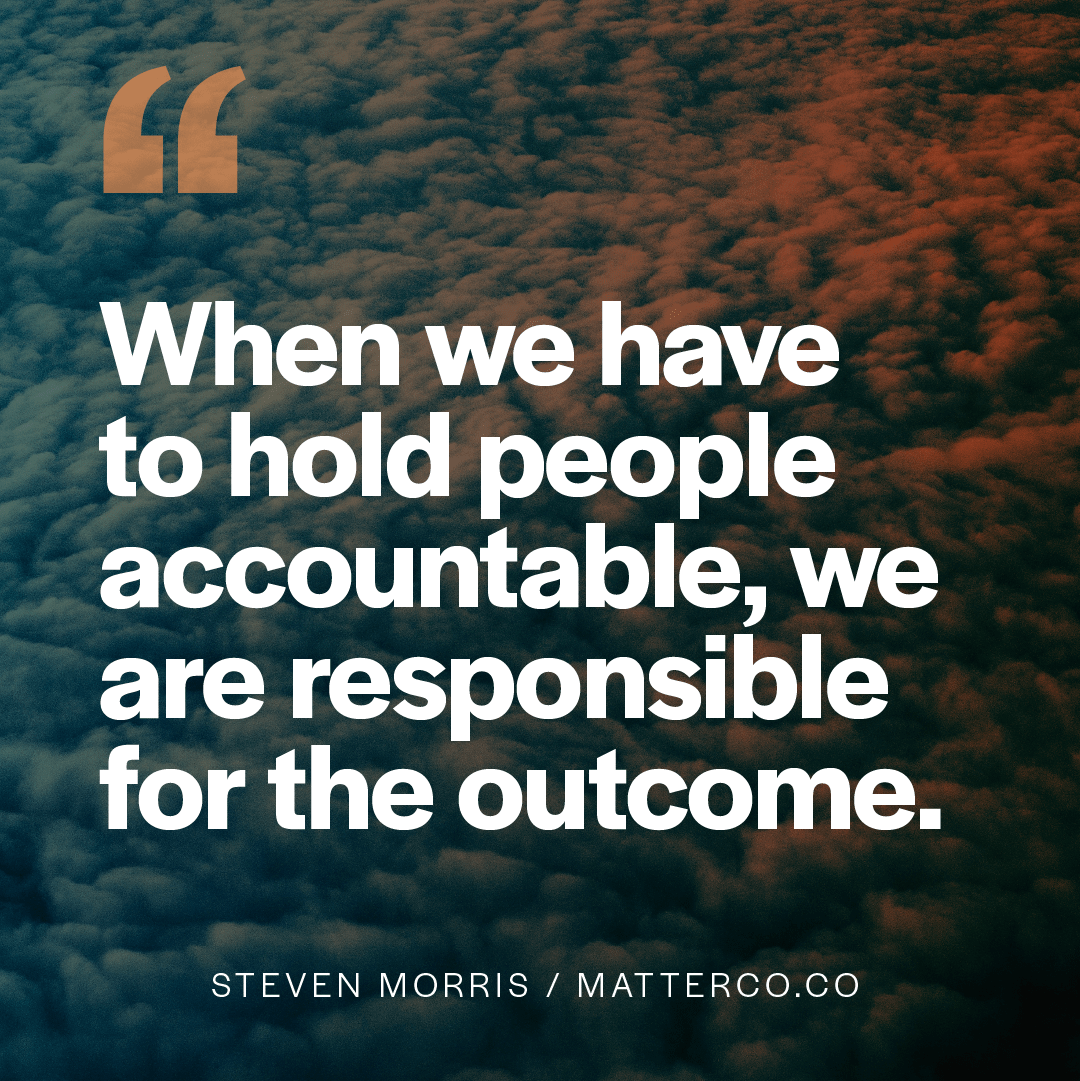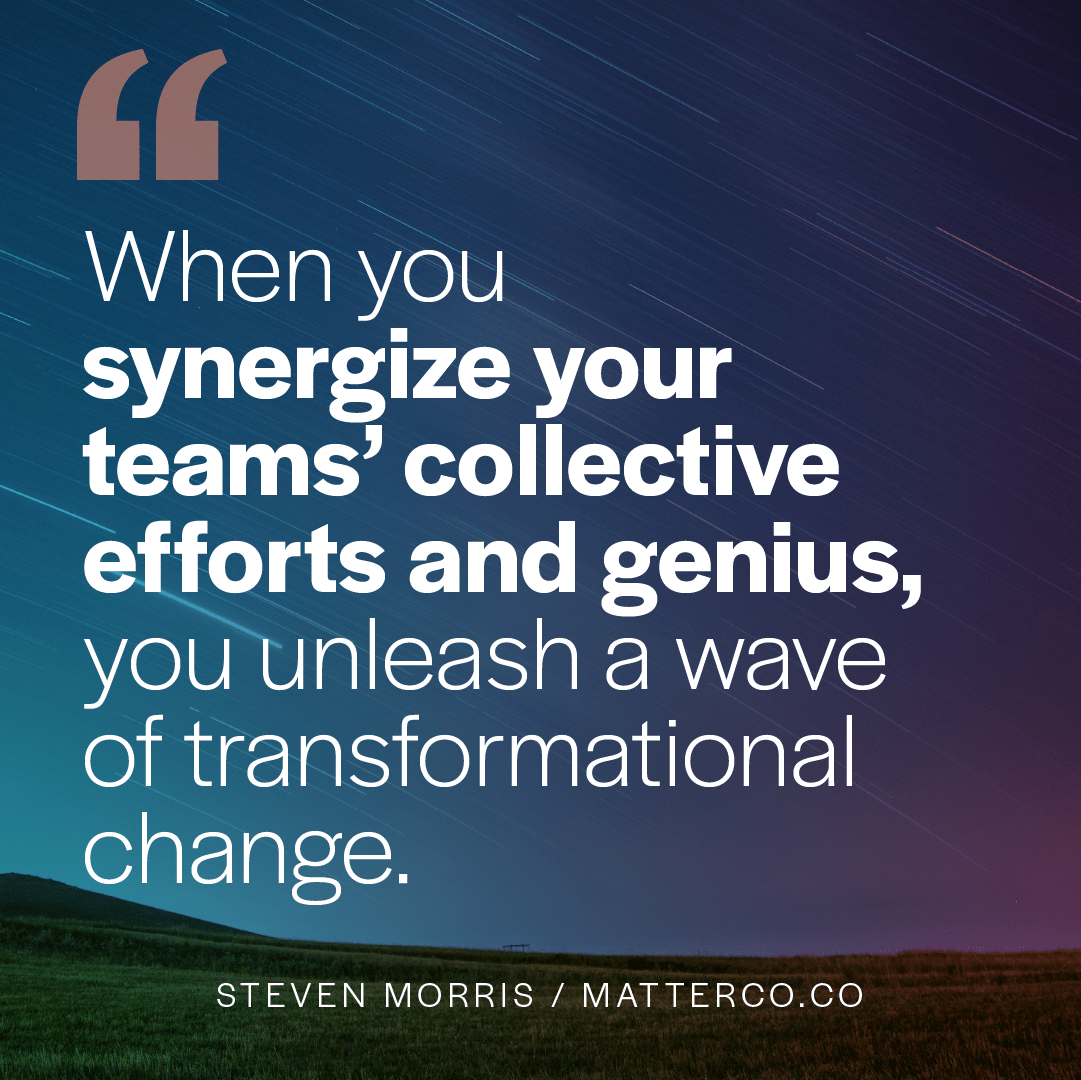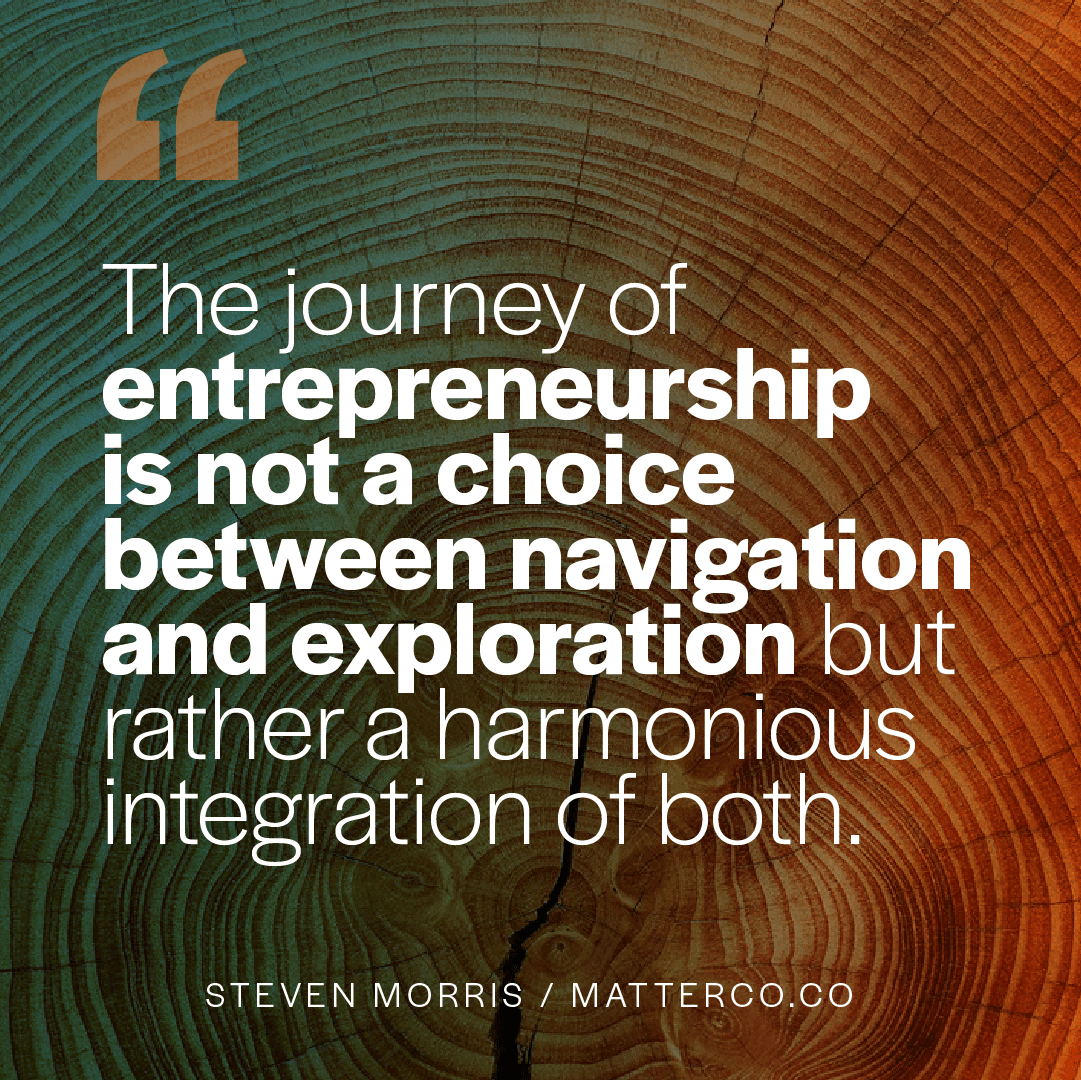
Trust Fulcrum & Levers
This is Part 2 of 4 on a Series about The Economics of Trust / See Part 1: The Upsides and Downsides of Trust
Can trust be measured? If so, what is its value?
When the trust is low on teams, efficiency goes down, and costs go up. This includes wasted time, gossip, back-channeling, and argumentative and sabotaging behaviors. Service, quality control, innovation, accountability, and communication all suffer as a result.
When the trust is high, efficiency increases and costs go down. Greater efficiencies are unleashed, communication and innovation flourish, and service is improved. Of course, this leads to greater profitability, higher morale, and increased stakeholder and shareholder value over time.
But how do we measure trust and in what areas? And once we discover ways to measure it, what do we do with the “data” to increase trust?
Measuring Internal Trust & Cultural Integrity.
One starting point for organizations is to measure internal trust. In my work as a culture advisor, I’ve developed a Culture Integrity Benchmark tool. Among other attributes, this tool measures the degree of trust that exists on a team.
Here are a few of the questions I ask. Responses to the questions below in my Culture Integrity Benchmark tool range from: Never > Rarely > Sometimes > Usually > Always:
- Team members value collective success more than individual achievement
- Team members challenge one another about their plans and approaches
- When conflict occurs, the team confronts and deals with the issue before moving to another subject
- Team members admit their mistakes
- All team members are held to the same high standards
You can do this on your own team. Ask the right questions, be open to deep listening, and turn it into action.
One of the worst things you can do is ask the team about how much trust they have, and do little to remedy what you discover. This deepens mistrust.
While measuring trust can begin with asking relatively simple questions, it matters who is doing the asking — especially if team trust is low. This is partially why trusted experts are hired to measure the integrity of the culture. And then help to address the issues. A caring and skilled third party can be invited in to do a campaign of listening to learn and apply what’s learned.
All of this is done so the people and the organization thrive.
If you want a more trusting team, a culture of belonging or a magnetic brand that attracts more of the right customers, I can help. If you'd like to explore if working together makes sense, drop me a line.







